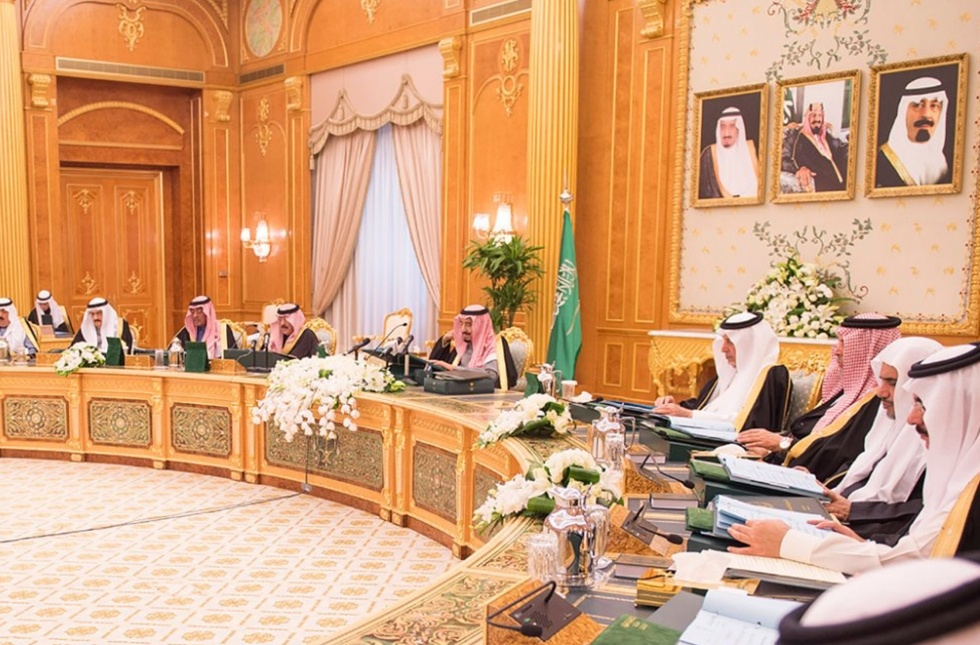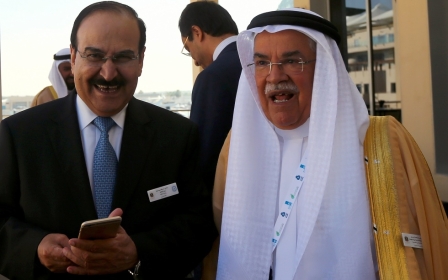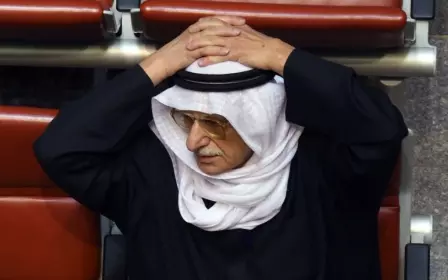Saudi projects big deficit in 2015 after oil price drop

Saudi Arabia announced a 2015 budget with a huge deficit Thursday as the world's largest crude exporter begins to feel the impact of its own decision not to shore up oil prices.
The government announced the $38.6 billion deficit in a statement read on state-run television, adding that it would nonetheless boost projected spending by tapping its vast financial reserves.
The lead producer in the Organization of the Petroleum Exporting Countries, Saudi Arabia has insisted the cartel will not move to strengthen global oil prices despite a drop of nearly 50 percent since June.
OPEC has maintained a production ceiling of 30 million barrels per day, in a move analysts say is aimed at stifling competition from new market players with higher costs, in particular North American shale oil producers.
Saudi officials have vowed not to boost production no matter how low prices go, regardless of the impact on the country's coffers.
The budget announced for next year sees spending at 860 billion riyals ($229.3 billion) and revenues at 715 billion riyals ($190.7 billion).
Projected spending is slightly higher than planned for this year, but revenues are 140 billion riyals lower than estimates for 2014, said the statement read after a cabinet session chaired by Crown Prince Salman bin Abdulaziz.
The 2015 budget shortfall is the first deficit projected by the OPEC kingpin since 2011 and the largest ever for the kingdom.
Over the past decade, Saudi Arabia overspent budget projections by more than 20 percent and if the trend is maintained next year, analysts say the deficit will be much higher.
"I believe we are headed for a difficult year in 2015. I think the actual deficit will be around 200 billion riyals because actual revenues are expected to be lower than estimates," Saudi economist Abdulwahab Abu-Dahesh told AFP.
"Spending in the budget is not in line with the sharp decline in oil prices," Abu-Dahesh said.
The finance ministry also announced the 2014 preliminary actual budget figures, saying it expects a deficit of 54 billion riyals ($14.4 billion) this year. It is the first actual budget shortfall since 2009.
Highest spending in history
The ministry said that, according to the preliminary figures, revenues in 2014 were 22 percent higher than projected. But preliminary spending was at $293.3 billion, the highest in the kingdom's history and about $33 billion more than expenditures in 2013.
The spending rise was due to huge expansion projects at Muslim holy sites in Mecca and Medina, an increase in spending on development projects and foreign aid, the finance ministry said.
The price of oil, which makes up around 90 percent of public income in Saudi Arabia, has lost about half of its value since June due to a production glut, weak global demand and a stronger US dollar.
Saudi Finance Minister Ibrahim al-Assaf said this month that Riyadh will continue massive public spending despite the sharp decline.
In royal decrees issuing the budget, Saudi King Abdullah called for "rationalisation of spending" and for the "accurate and efficient implementation of the budget" in 2015.
If oil prices remain at the current level of about $60 a barrel for benchmark Brent crude, Saudi Arabia is expected to lose half of its oil revenues of $276 billion posted in 2013. Oil income this year is expected at $248 billion.
But the wealthy kingdom, which pumps around 9.6 million barrels per day, can easily tap into huge fiscal buffers, estimated at $750 billion, to meet the budget deficit.
King Abdullah authorised the finance minister to draw from the reserves or to borrow to meet the deficit.
Ratings agency Standard and Poor's lowered its outlook for Saudi Arabia to stable from positive following the slide in oil prices.
But S&P also affirmed its high ratings for Riyadh over the "strong external and fiscal positions" it has built up in the past decade.
Saudi Arabia's oil minister, Ali al-Naimi, has vowed to stay firm and not reduce oil production irrespective of oil price.
Speaking to the Middle East Economic Survey on Tuesday, he said that the OPEC understood the benefits of not reducing production and trying to push prices back up.
Middle East Eye propose une couverture et une analyse indépendantes et incomparables du Moyen-Orient, de l’Afrique du Nord et d’autres régions du monde. Pour en savoir plus sur la reprise de ce contenu et les frais qui s’appliquent, veuillez remplir ce formulaire [en anglais]. Pour en savoir plus sur MEE, cliquez ici [en anglais].




